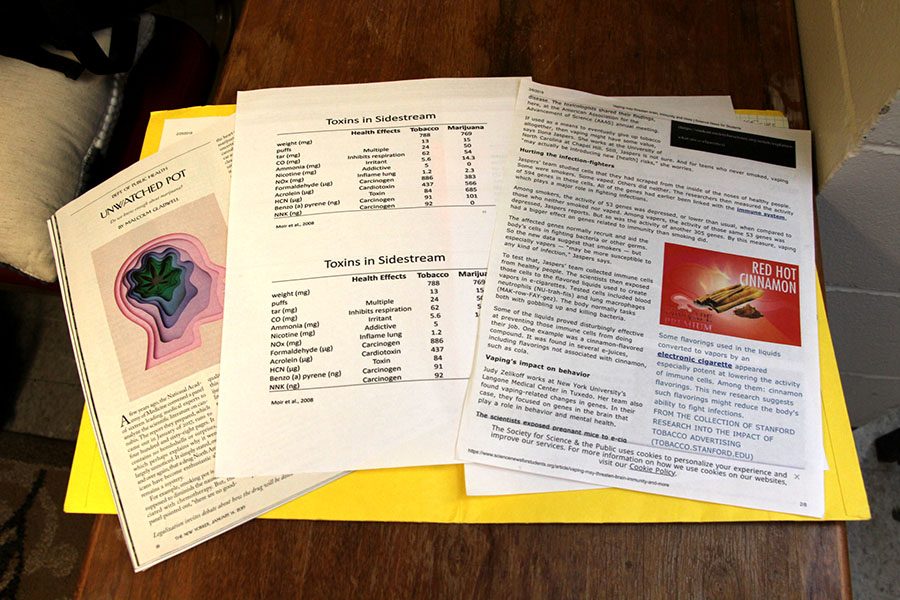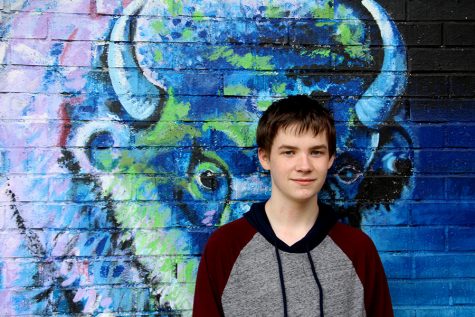Rehabilitation vs. punishment: How does South handle drugs?
This type of information is discussed in the new Chemical Health group founded in part by South social worker Becky Wood. The group provides a safe place for students to ask questions about drugs. South has used it as an alternative to discipline when dealing with intoxicated students. The group is hosted Friday mornings from 9am to 10am.
March 11, 2019
I think we all have a story that’s got something to do with drugs at South. Whether we’ve seen something in the bathroom or we ourselves have been in a situation where we ended up using something; pretty much everyone has encountered drugs. “I feel like in freshman year I saw a lot more drug use throughout the school or around the school and as I’ve grown up and now that I’m in twelfth grade I just surround myself [with] more academic things,” said senior Nara Coldwater on her perception of drugs at South. “I think as you grow up you start to realize…doing drugs while you’re at school is kind of stupid.”
However there are students who choose to do drugs at school. That’s why South has a drug policy. “The message from admin is if you suspect a child to be high in your class then you would call the office immediately and have someone come up and get that student so that they could talk to them and determine…whether they are high,” said South English teacher Michelle Ockman.
The dean of security Terrence Roberts went over how this policy normally works after a student is found to be under the influence or in possession of drugs. “The district policy is if you get caught with any type of drugs it’s an out of school removal. Anywhere from one to three, up to five days just depending on the amount [of drugs] and that type of stuff,” said Roberts.
“It’s definitely an out of school suspension and we have in the past had a [drug and alcohol] counselor who was stationed in the building,” Roberts said. “If kids were under the influence or we suspect they have a problem with drugs we’d refer that person to the [drug and alcohol counselor] and they’d have resources for that student or parent to kind of address their issues,” Roberts continued.
This year the drug and alcohol counselor only shows up a few days a week and South needed a new way to help kids in crisis. This issue is not a new one to South social worker Becky Wood and the rest of the social worker team. “Last year the social worker team talked about the need for more support,” said Wood.
This led to Wood starting the South High Chemical Health group earlier this school year. “Last spring I went over to Washburn and sat in on one of their groups and I wanna say 15 students showed up that day. It struck me that that was a really healthy way for students to talk about stuff that normally might seem either taboo…[we] just [want] to have a space where we could provide some information or some support for students who are either trying to make changes or trying to understand their own choices better.”
Wood talked about how the meetings were normally structured. “Its really a support-educational model so it’s not ‘Hi my name is Becky and I’m an addict,’ it is not a chemical dependency group they don’t actually even use the term chemical dependency at treatment facilities any more,” continued Woods. “So showing up to that group is not some kind of admission of dependency. It’s really about a safe space to learn and ask questions.”
Since the founding of the group earlier this school year administrators have been occasionally sending students caught with drugs to the Chemical Health Group which meets every Friday morning. Hopefully with the help of the Chemical Health Group not every South student will have a story about drugs.






